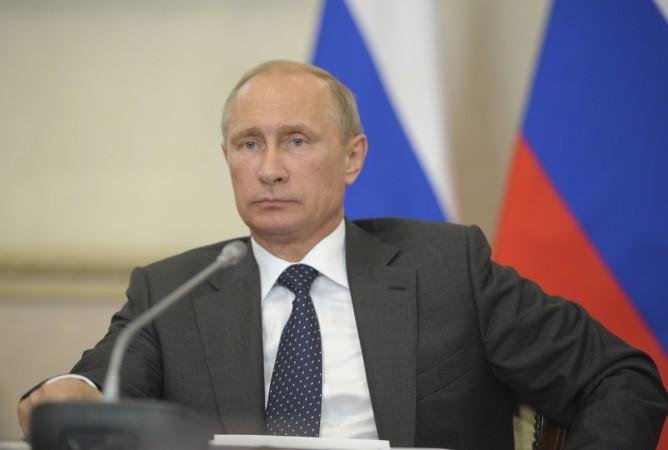
President Vladimir Putin said on Thursday Russia's economy would rebound after the ruble's collapse against the dollar but warned that it could take two years for the country to emerge from crisis.
Under pressure to show he has a plan to pull Russia out of crisis at his end-of-year news conference, Putin supported the actions of the central bank and government in a crisis he blamed on external factors but said further measures would be required.
Russia's economy is heading into recession in what one minister called a "perfect storm" of low oil prices, Western sanctions in theUkraine crisis and global economic problems. The rouble is down 46 percent against the dollar this year.
"If the situation develops unfavorably, we will have to amend our plans. Beyond doubt, we will have to cut some (spending). But a positive turn and emergence from the current situation are unavoidable," Putin said.
"The growth of the global economy will continue and our economy will rebound from the current situation."
He said Russia must diversify its economy to reduce dependence on oil, its major export and a key source of state income and a recovery could start at some point next year.
The rouble was more than 2 percent weaker on the day, despite central bank action to prop up the currency and around 45 percent down against the dollar this year.
Putin had been silent as the currency collapsed this week before recovering some ground.
A prominent opponent, former Prime Minister Mikhail Kasyanov, said the crisis showed Putin had mismanaged the economy and that he should organize free elections to quietly end his almost 15-year domination of Russia.
"Russia is going into decline," Kasyanov told Reuters in an interview late on Wednesday, suggesting Putin should accept that "he needs an exit strategy" to leave power.
Economy Minister Alexei Ulyukayev said in a newspaper interview the Western sanctions were likely to last "a very long time" and Russia was paying the price for failing to carry out structural reforms, describing events as "the perfect storm".
"When a U.S. law is passed it is very hard to change it afterwards - looks like it will be in place for decades," Ulyukayev said, referring to U.S. moves on sanctions.
PRESSURE FOR 'BIG IDEAS'
Opinion polls show Putin has sky-high popularity ratings since annexing the Crimea peninsula from Ukraine in March, but the ruble's decline and Russia's slide towards recession could erode faith in Putin's ability to provide financial stability.
A 6.5 percentage point increase in the key lending rate to 17 percent failed to prop the rouble up on Tuesday. Russia has also spent more than $80 billion this year trying to shore it up. Putin failed in a state-of-the-nation address on Dec. 4 to offer any big ideas to turn around the economy.
His annual news conference and phone-in, shown live on television, is usually a marathon performance that can last more than four hours.
The European Union and the United States have imposed several rounds of sanctions on Moscow over the seizure of Crimea and because of its backing for pro-Russian separatists in a conflict that has killed more than 4,700 people.
EU and U.S. officials say they have seen some positive signs from recent comments by Russian officials on Ukraine but want Moscow to do more to resolve the crisis.

















